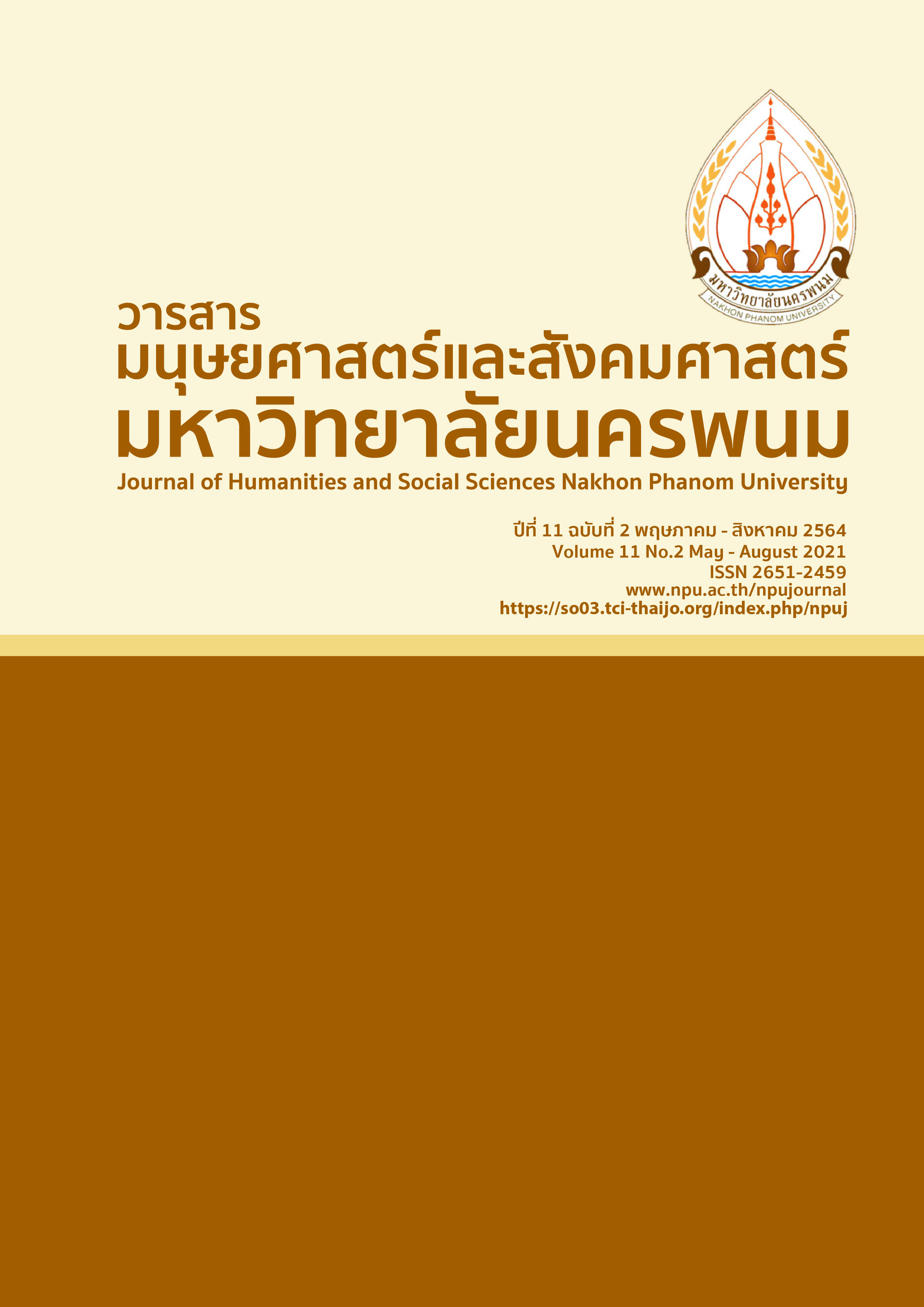The Study of the Theory of Planned Behavior and Extended Factors Affecting Intention to Consume Craft Bee
Main Article Content
Abstract
The objective of this research was to examine factors influencing intention to consume craft beer in Bangkok by applying theory of planned behavior that was consisted of attitude, subjective norms and perceived behavioral control. In addition, there were self-identity factors and desires for unique consumer product factor analyzing in this study. Samples were 500 consumers, who lived in Bangkok and vicinity and have the experienced in consuming craft beer within a year. The study’s results revealed that the elements of planned behavior theory consisting of attitude, self-identity factor and demand in for consuming unique products. Such factors inspiring consumers’ intention to consume Craft Beer. Furthermore, different genders affect the attitude factor, subjective norms, self-identity and desire for unique consumer product factor. The results of this study can be used as a guideline for further development in business’s value added i or to further study craft beer consumer behavior.
Article Details
References
Ajzen, I. and Fishbein, M. (1975). Belief, attitude, intention, and behavior: An introduction to theory and research. Reading, Mass : Addison-Wesley Pub. Co.
Ajzen, I., and Fishbein, M. (1980). Understanding attitudes and prediction social behavior. New Jerzy : Prentice-Hall.
Ajzen, I. (1985). From intentions to actions: A theory of planned behavior. In Action control, New York : Springer.
BLT. (2018). Nǣonōm talāt khrā bīa Thai pī hoksipʻet [Thai Craft Beer Market Trends 2018]. Retrieved September 2020, from https://www.bltbangkok.com/news/4320/
BLT. (2019). Thurakit bīa pī hoksipsō̜ng mā rǣng lāi brǣn ruk talāt rap sēn nak dư̄m run mai [Beer business in 2019 is popular. Many brands are pushing the market for a new generation of drinkers]. Retrieved September 2020, from https://www.bltbangkok.com/news/4571/.
Chainarong, I. (2018). Thritsadī phrưttikam tām bǣpphǣn kap khwāmtangčhai ʻō̜kkamlang kāi dūai kān dœ̄n nai phūpūai phāilang kān kœ̄t rōk lō̜tlư̄at samō̜ng [Theory of planed behavior and walking exercise intension in post stoke patients.] Journal of The Royal Thai Army Nurses. 19(1),47-55
Davis, J. L., and Love, T. P. (2019). Collective social identity: Synthesizing identity theory and social identity theory using digital data. Social Psychology Quarterly. 82(3),254-273.
Hair, J., Anderson, R., Tatham, R., and Black, W. (1998). Multivariate data analysis. 5th ed. New Jersey : Prentice Hall.
Hair, J. F., Anderson, R. E., Babin, B. J., and Black, W. C. (2010). Multivariate data analysis: A global perspective. 7th ed. New Jersey : Pearson.
Jain, S., Khan, M. N., and Mishra, S. (2017). Understanding consumer behavior regarding luxury fashion goods in India based on the theory of planed behavior. Journal of Asia Business Studies. 11(1),4-21.
Moneybuffalo. (2018). Talāt bīa yai khǣ nai bon lōk bai nī? [How big is the beer market on the planet?]. Retrieved September 2020, from https://www.moneybuffalo.in.th/business-economy.
Pedhazur, E. J. (1997). Multiple Regression in Behavioral Research: Explanation and Prediction. Stamford, CT : Thomson Learning.
Perrotte, J. K., Baumann, M. R., and Knight, C. F. (2018). Traditional gender roles and the stress–alcohol relationship among Latina/o college stu- dents. Substance Use Misuse. 53(10),1700-1705.
Petrovskaya, I., and Haleem, F. (2020). Socially responsible consumption in Russia: Testing the theory of planned behavior and the moderating role of trust. Business Ethics. 30(1),38-53.
Piriyakul, I., Piriyakul, R., and Maharutaiyanon, A. (2017). Kān hā ʻēkkalak khō̜ng phāplak trāsin khā čhāk prasopkān khō̜ng lūkkhā læ khō̜khithen khō̜ng fǣn phēt chāo Thai tō̜ trāsin khā [Identification of brand image from the customer experience and comment of Thai brand fan pages.] Kasem Budit Journal. 18(1),201-218.
Piyapan, W., Srisuruyawet, R., and Homsin, P. (2016). Patčhai thamnāi khwāmtangčhai tō̜ kān dư̄m khrư̄angdư̄m ʻǣnkō̜hō̜ bǣp mī khwāmsīang nai nakrīan ʻāchīwasưksā chāi čhangwat chai nāt. [Predictive factors of intention to engage in risky drinking among male vocational student in Chai Nat province]. The Journal of Faculty of Nursing Burapha University. 24(2),85-95.
Rivaroli, S., Lindenmeier, J., and Spadoni, R. (2019). Attitudes and motivations toward craft beer consumption: an explanatory study in two different countries. Journal of Food Product. 25(3),276-294.
Snyder, C. R., and Fromkin H. L. (1980). Uniqueness: The human pursuit of difference. New York : Plenum.
Taylor, S. Jr., and DiPietro, R. B. (2019). Segmenting craft beer drinkers: An analysis of motivations, willingness to pay, and repeat patronage intentions. International Journal of Hospitality & Tourism Administration. 20(4),423–448.
Thairathonline. (2020). Nǣonōm ʻutsāhakam khrư̄angdư̄m ʻǣnkō̜hō̜ rœ̄m ʻimtūa čhœ̄khōwit - sipkāo sam [Industrial trend alcoholic beverages become saturated repeated coronavirus]. Retrieved December 2020, from https://www.thairath.co.th/news/business/market-business/1938888.
Thammawimutti, A., and Pasunon, P. (2016). ʻItthiphon khō̜ng thatsanakhati kān khlō̜itām banthatthān khō̜ng klum ʻāngʻing kān khūapkhum phrưttikam læ bukkhalikkaphāp bǣp pœ̄tphœ̄i thī mī tō̜ phrưttikam kān dư̄m khrư̄angdư̄m ʻǣnkō̜hō̜ khō̜ng naksưksā ying radap parinyā trī mahāwitthayālai rātchaphat klum phūmiphāk tawantok [Influences of attitude, subjective norm, controlled behavior, and extraversion personality toward alcohol drinking behavior of female students in western area Rajabhat univerdities.] Veridian E-Journal Silpakorn Universiry. 9(1),1533-1548.
Vesci, M., and Botti, A. (2019). Festival quality, theory of planned behavior and revisiting intention : Evidence from local and small Italian culinary festivals. Tourism Management. 38,5-15.
Wang, C., Zhang, J., Yu, P., and Hu, H. (2018). The theory of planned behavior as a model for understanding tourists’ responsible environmental behaviors: The moderating role of environmental interpretations. Journal of Cleaner Production. 194,425-434.


